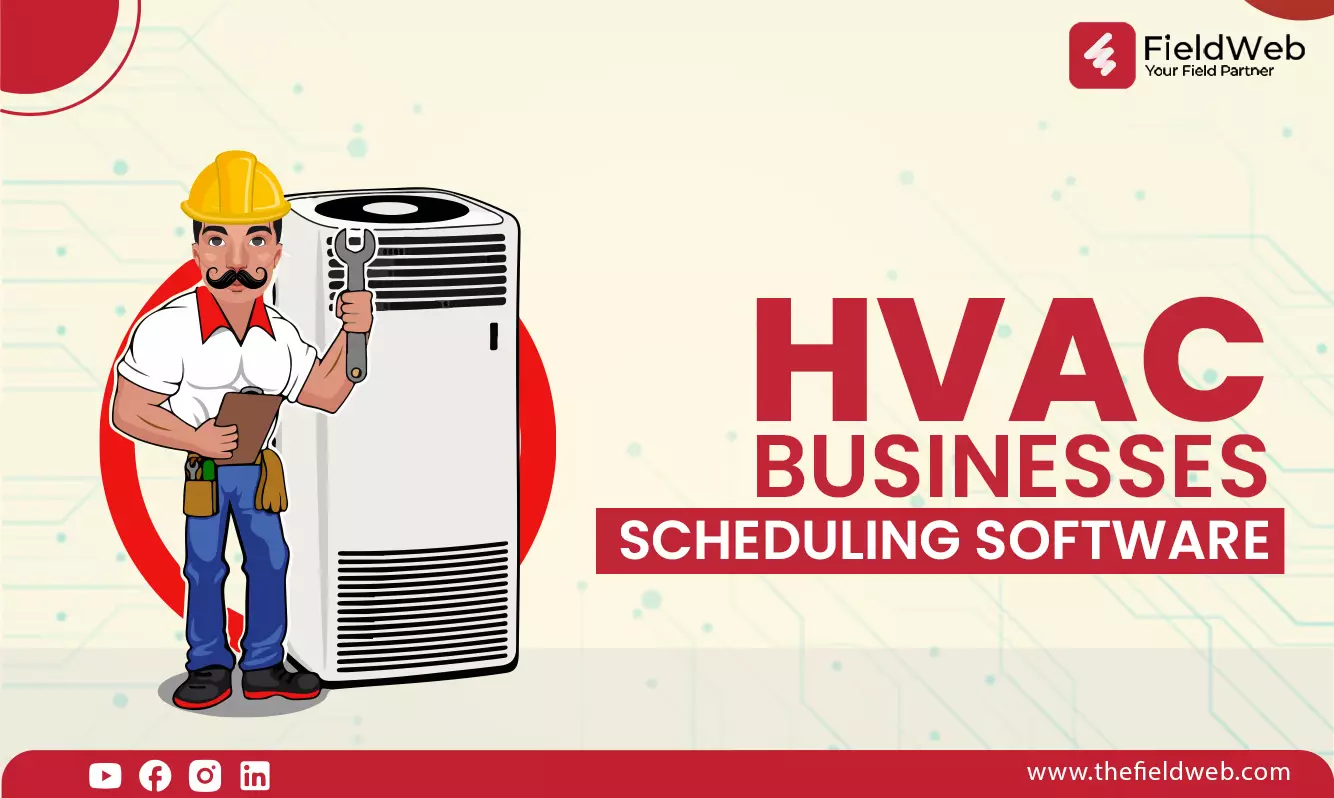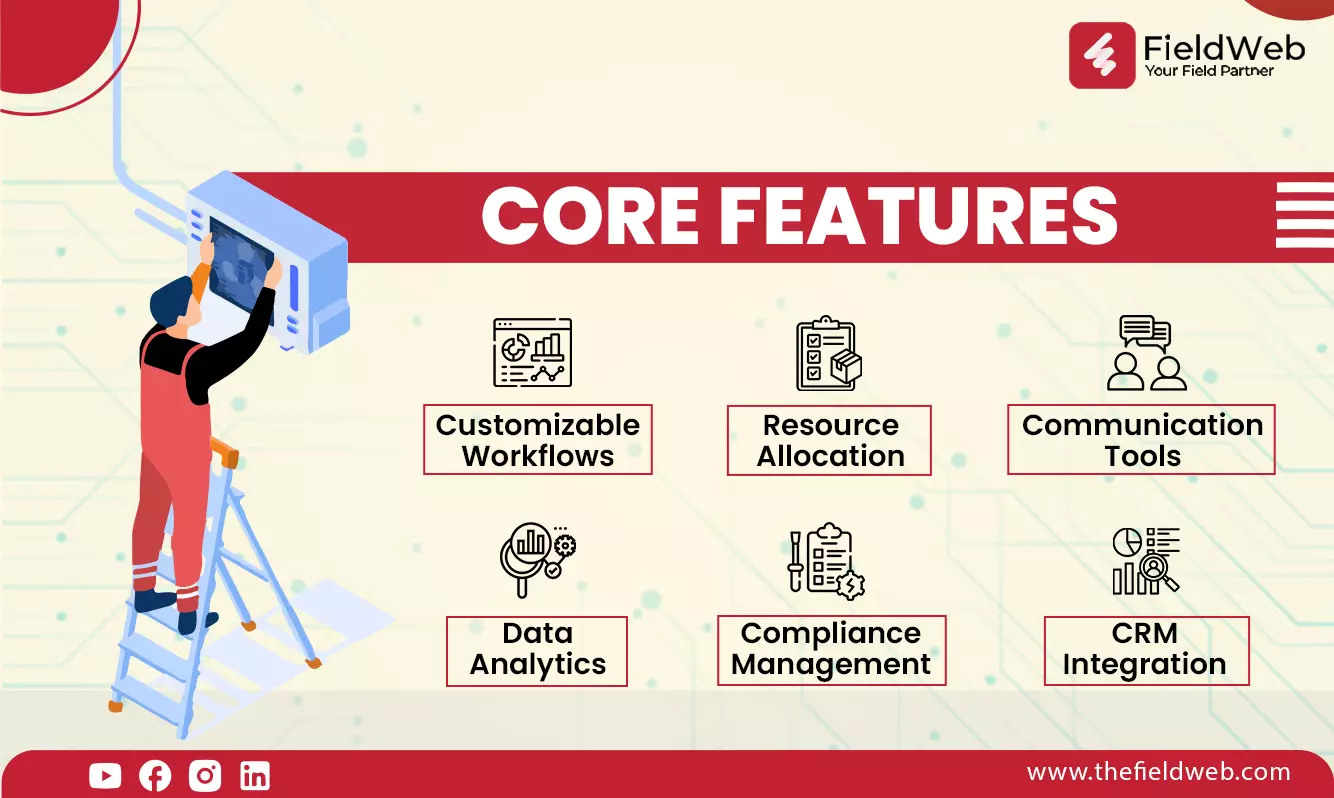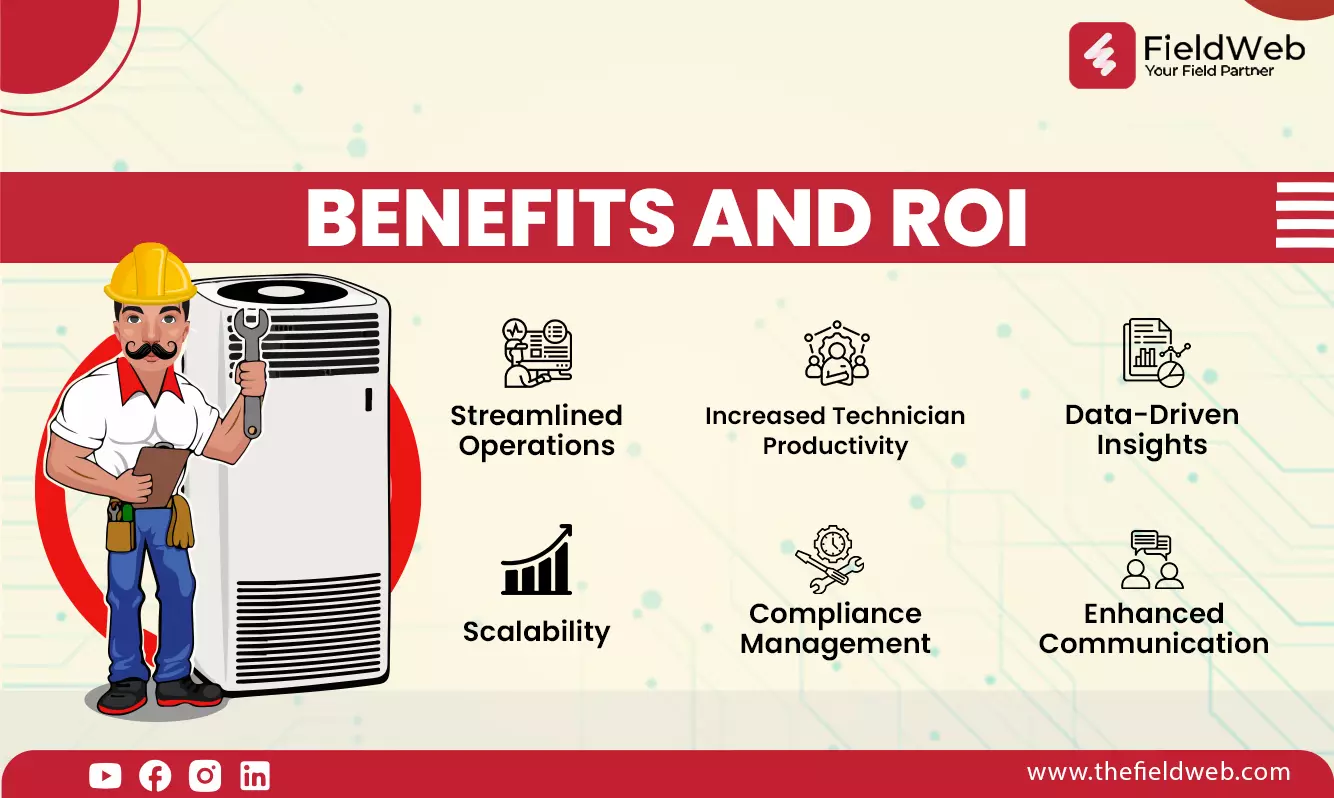
Welcome to the world of HVAC scheduling software, where precision meets productivity. In the bustling realm of Heating, Ventilation, and Air Conditioning (HVAC), effective scheduling isn't just a convenience—it's a strategic necessity. Every aspect of HVAC operations, from routine maintenance to emergency repairs, relies on efficient scheduling to ensure that customers receive timely and reliable service. HVAC scheduling software plays a pivotal role in orchestrating the intricate dance of technicians, equipment, and customer demands, allowing businesses to maximize their resources and deliver unparalleled service experiences. Let's delve deeper into how HVAC scheduling software transforms operations and empowers businesses to thrive in today's competitive landscape.

In the HVAC industry, time is indeed money, and every minute lost to inefficient scheduling can have a significant impact on the bottom line. Managing technician schedules, coordinating service calls, and ensuring timely responses to customer inquiries are just a few of the many tasks that HVAC businesses must juggle on a daily basis. Without effective scheduling practices in place, businesses risk missed appointments, wasted resources, and dissatisfied customers. HVAC scheduling software serves as a lifeline for businesses, offering a centralized platform that streamlines operations and enhances efficiency across the board. By providing real-time visibility into technician availability, automating appointment scheduling, and optimizing route planning, scheduling software empowers businesses to overcome these challenges and deliver exceptional service experiences to their customers.

HVAC scheduling software is a specialized tool designed to streamline and optimize the scheduling process for heating, ventilation, and air conditioning (HVAC) companies. It allows HVAC businesses to efficiently manage their appointments, dispatch technicians to job sites, and track the status of ongoing jobs in real time. This software typically includes features such as calendar-based scheduling, job assignment capabilities, route optimization, customer database management, and communication tools for notifying technicians and customers about appointments. By automating scheduling tasks and providing visibility into technician availability and job status, HVAC scheduling software helps companies improve productivity, minimize scheduling conflicts, and enhance overall customer service.

At the core of HVAC scheduling software lies a rich array of features meticulously crafted to cater to the intricate needs of the industry and propel businesses toward success:
1. Customizable Workflows: HVAC scheduling software offers customizable workflows tailored to the specific requirements of each business, allowing for seamless integration with existing processes and systems.
2. Resource Allocation: Beyond simply assigning tasks, scheduling software intelligently allocates resources based on factors such as technician skill sets, equipment availability, and job priorities, ensuring optimal utilization of resources.
3. Communication Tools: Effective communication is key to successful service delivery. HVAC scheduling software provides robust communication tools, enabling technicians to stay in constant contact with dispatchers, colleagues, and customers throughout the service lifecycle.
4. Data Analytics: Harnessing the power of data analytics, scheduling software generates valuable insights into operational performance, customer trends, and technician productivity, empowering businesses to make data-driven decisions and continuously improve their processes.
5. Compliance Management: With ever-changing regulations and industry standards, compliance management is a critical aspect of HVAC operations. Scheduling software includes features to track and manage compliance requirements, ensuring that businesses remain compliant with relevant regulations at all times.
6. Customer Relationship Management (CRM) Integration: Seamless integration with CRM systems allows businesses to consolidate customer data, track service history, and personalize interactions, enhancing the overall customer experience and fostering long-term relationships.
By leveraging these advanced features, HVAC businesses can unlock new levels of efficiency, productivity, and customer satisfaction, positioning themselves for sustained growth and success in today's competitive landscape.

In summary, when selecting HVAC scheduling software, customers should prioritize solutions that offer comprehensive functionality without the need for external integrations. By choosing software that provides everything in one place, businesses can achieve greater efficiency, collaboration, and success in their operations.

The benefits of implementing HVAC scheduling software extend far beyond these primary advantages. Here's a deeper look into how this technology can transform your HVAC business:
1. Streamlined Operations: HVAC scheduling software centralizes all scheduling-related tasks, streamlining processes and reducing administrative overhead. This allows businesses to operate more smoothly and efficiently, with fewer errors and delays.
2. Increased Technician Productivity: With automated scheduling and optimized routes, technicians spend less time on the road and more time on actual service calls. This leads to increased productivity, allowing businesses to complete more jobs in a day and generate higher revenue.
3. Data-Driven Insights: HVAC scheduling software provides valuable insights into key performance metrics such as technician productivity, job completion times, and customer satisfaction ratings. By leveraging this data, businesses can identify areas for improvement and make informed decisions to drive growth.
4. Scalability: As your business grows, so too does the complexity of your scheduling needs. HVAC scheduling software is scalable, allowing businesses to easily add new technicians, locations, and service offerings without sacrificing efficiency or quality of service.
5. Compliance Management: HVAC companies must adhere to various regulations and industry standards, which can be challenging to track and manage manually. Scheduling software automates compliance management tasks, ensuring that businesses remain compliant with relevant laws and regulations at all times.
6. Enhanced Communication: Effective communication is essential for delivering exceptional customer service. HVAC scheduling software facilitates communication between technicians, dispatchers, and customers, ensuring that everyone stays informed and on the same page throughout the service process.
In summary, the benefits of HVAC scheduling software are diverse and far-reaching. By investing in this technology, businesses can improve efficiency, enhance customer satisfaction, and achieve long-term success in the competitive HVAC industry.

As technology continues to advance at a rapid pace, the future of HVAC scheduling software holds even greater promise. Here's a closer look at some of the exciting developments and emerging trends that are shaping the industry:
1. Artificial Intelligence (AI) and Machine Learning: AI-powered algorithms are revolutionizing HVAC scheduling by analyzing vast amounts of data to identify patterns, optimize schedules, and predict equipment failures before they occur. By harnessing the power of machine learning, businesses can improve efficiency, reduce downtime, and deliver more proactive service to customers.
2. Predictive Analytics: Predictive analytics takes AI a step further by using historical data to forecast future trends and anticipate customer needs. HVAC scheduling software equipped with predictive analytics can predict demand, optimize resource allocation, and preemptively schedule maintenance tasks, helping businesses stay one step ahead of the competition.
3. Internet of Things (IoT) Integrations: The IoT is transforming the way HVAC systems are monitored and managed. IoT-enabled devices collect real-time data on equipment performance, energy usage, and environmental conditions, allowing businesses to optimize scheduling based on actual system needs. Integrating IoT data into scheduling software enables businesses to proactively identify issues, optimize energy efficiency, and deliver more personalized service to customers.
4. Mobile Applications: Mobile technology is increasingly becoming the norm in the HVAC industry, enabling technicians to access scheduling software and other essential tools from anywhere, at any time. Mobile applications allow technicians to view job details, update job statuses, and communicate with customers and colleagues on the go, improving efficiency and responsiveness.
6. Virtual and Augmented Reality: Virtual and augmented reality technologies are revolutionizing training and maintenance in the HVAC industry. By simulating real-world scenarios and providing interactive training modules, virtual and augmented reality tools help technicians gain hands-on experience and troubleshoot problems more effectively. Integrating these technologies into scheduling software enhances training programs and improves overall service quality.
By staying abreast of these emerging trends and embracing innovation, HVAC businesses can position themselves for long-term success in an increasingly competitive market. By investing in advanced scheduling software equipped with AI, predictive analytics, IoT integrations, mobile applications, and virtual/augmented reality capabilities, businesses can stay ahead of the curve and deliver exceptional service to their customers.
In conclusion, HVAC scheduling software stands as a beacon of innovation and efficiency in the ever-evolving landscape of the HVAC industry. It represents far more than just a tool for managing schedules; it's a transformative solution that empowers businesses to streamline operations, enhance customer satisfaction, and drive profitability.
By embracing HVAC scheduling software, businesses can achieve a myriad of benefits that extend beyond mere efficiency gains. The ability to deliver timely and reliable service fosters trust and loyalty among customers, leading to stronger relationships and repeat business. Additionally, by optimizing resource allocation and minimizing downtime, businesses can maximize their revenue potential and improve their bottom line.
OUR POWERFUL FEATURES